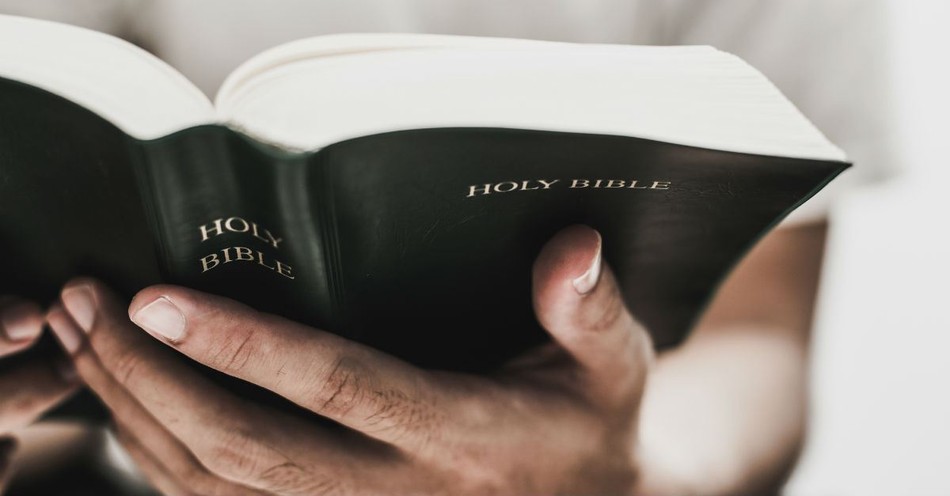
Here, a variety of Christian leaders give their perspectives on the best Bible study method.
Best Way to Study the Bible: Eric C. Raymond
1. Start reading and ask God for help.
The best way to approach the Bible is to simply start reading it consistently and regularly and that with prayer, asking God, crying out to him.
Even if you might be someone who says, "I don't really know god." Cry out and say, "I would like to know the truth about who you are God as I'm reading Scripture." I'm not looking for a mysterious or mystical experience there, but just as someone would really read along, hoping God will open up his Word to them.
2. While Reading, look for God in the story.
And then as you're reading, look for what the pastor says about God, and what the pastor says about what God does. What does they say that God is doing and who they say he is. If they say he is holy, then you're learning something about God.
If they say that he is good or that he demonstrates mercy to someone or that he's patience with someone, then you're learning about God, and you're looking for these things consistently. Then you're watching what are his acts. Does God deliver somebody from their slavery in Egypt or their subjugation to their enemies in the book of Judges?
3. Read both Old and New Testaments.
And we're just consistently reading, reading, reading. Along with that reading, I would suggest that we read in both our Old and New Testaments. If you could develop a habit to read a small portion of the Old Testament and a small portion of the New Testament daily, that will be good.
4. Listen to godly teaching on Scripture.
We'll be remiss if we didn't say, "Along with our own personal reading, we need to sit under some people that have been gifted and called by God to teach his Scriptures - a pastor who preaches the word of God." And what you hear when he is preaching is that he talks about what Jesus has done for sinners, who he is, and what he offers in terms of eternal life and life here.
That gives you a way to look for what God is doing in his plan throughout Scripture. We're looking for Christ, and we're looking for the identity of God and what he means to us. And you'll start to see things consistently both in the Old and New Testament.
A great book on this is a book by a man named Michael Lawrence who wrote a book called Biblical Theology For The Church. It's just an excellent resource that trains us how to read and how to look for God in Scripture and what it says about Christ in Old Testament, New Testament. It's written very simply for the average guy in the pew or just off the street. That's been very helpful as I've been working with my congregation.
So again, we're looking for what does it say about God, what does it say about what God is doing. We're looking for the person of Christ and what he has done on behalf of sinners and what he offers in life. And if we start to read that way and read daily, consistently crying out to god, hopefully soon, as we're also sitting under preaching, we'll hear God speaking from his Word and we'll see what the Bible is saying from God himself.
What Is the Best Way to Study the Bible: Woodrow Koll
If you're a new believer and you're asking, "Where do I start reading my Bible?" Most people will say the Gospel of John, and I understand why that's true. The Gospel of John represents a historical account of the life of Jesus. Jesus is the most important person in the Bible, Jesus is the most important person in life, but it's not necessary that you start at the Gospel of John. For example, if you went down to a bookstore in the mall and bought a book and you said to the owner, "Where should I start reading this book?" He wouldn't say, "Chapter 28," he'd say, "Chapter one." I don't see any reason why we shouldn't start right in Genesis chapter one and read right through the Bible. Now, admittedly, there are some portions of the Bible more difficult to read, more difficult to understand than others, but the great thing is the Spirit of God helps us understand even those difficult passages.
I've been studying God's word, speaking from God's word, teaching God's word for a lot of years, and there are things I still don't understand, things I probably never will understand, but I think the best way for a new person to God's word to really understand and read God's word is three things, and they're a little bit corny, so forgive me. Number one, you need a book, and here it is, right here, the Bible. Number two, you need a look. You need to actually open that Bible and read it. Most people don't know what God says because they've never read the Bible. And three, you need a nook. You need a place to go to. You need a desk or you need a place that you will go to on a consistent basis. One of the reasons why people have difficulty reading the Bible is they don't do it consistently.
They do it today, they do it a week later, and we know that it is the consistency of getting into God's word that changes the way we live our lives. So three little things. Make sure you have a Bible that you can read and that you can understand, and there are just lots of them out there today. Make sure that you pick a time and you actually open the word of God and read it. This book can be read in less than 72 hours. I don't recommend it all in one sitting, but you can read half the books of this Bible in less than 30 minutes, 26 of them in less than 15 minutes. So it's not an insurmountable task. It just takes a place, it takes the desire to do it, and it takes you doing it consistently.
What Is the Best Way to Study the Bible: Chris Brauns
I would say the best way to study the Bible is in the church. Now, for a Protestant pastor, that might be a sort of surprising answer because we know that key moment in the Reformation was at the diet of Worms when Luther was told that he needed to recant his position, and Luther asked for a recess, and then he came back and he said, and I'm paraphrasing here, but, "Unless I'm persuaded, unless I'm convinced by the clear and straightforward teaching of scripture, I cannot and will not change my position. God help me. Here I stand from there." The Reformation articulated the doctrine of the perspicuity, big word there, perspicuity or clarity, that's a little easier, clarity of scripture. That means that all believers in the power of the Holy Spirit can open up the Bible and read it for themselves. Now, at that moment, Rome said, "If we allow everyone to read the Bible on their own, then it will be open to all kinds of errors, all kinds of misinterpretation."
And on the one hand, that's true. It certainly has been misinterpreted. But we can't stop a legitimate practice by saying something bad might happen. You can't tell people you can't get married because someone might get divorced. And certainly, we can't tell believers you can't read the Bible on your own because you might misinterpret it. So from there, Luther translated the Bible into the people's language, and the Reformation blew over Europe and blew over the world. So when I say the best way to read the Bible is in the local church, that's kind of a surprising answer for a Protestant. But here's why I think so. First of all, it's in the church that individual believers can learn good Bible study habits. They can learn (big word here), they can learn hermeneutics: how to open up the scriptures, see what's significant, and bring it to bear on their lives.
It's in the church that pastors are given. Ephesians 4 says that it was he who "gave some to be apostles, some to be prophets, some to be evangelists, and some to be pastors and teachers to build up the body, to prepare God's people for works of service." So, when you go into the church and biblical preaching is modeled, when you sit under the word, not only are you learning the content of what the pastor is saying, but you are learning Bible study methods as well. If you go into the scripture or into the church and you study in small groups, you don't say, "What does this passage mean to me?" You say, "What is the transcendent truth of this passage? What is the truth, the timeless truth? And then what does that have to do with living in the 21st century in the church?"
You pray together and exhort one another. So I think that's a great way to study the Bible, but certainly we believe in the clarity or the perspicuity of scripture that whoever you are, if you pray, Psalm 119:18, "open my eyes that I may see wonderful things in your word" and God will answer that prayer. Great book on this subject is a book that's been around for a while, I think it's published by Zondervan, How to Read the Bible for All It's Worth, written by Gordon Fee and Doug Stewart. It's a wonderful book and introduction to Bible study, how to read the Bible for all it's worth.
Photo Credit: GettyImages/ChristianChan


